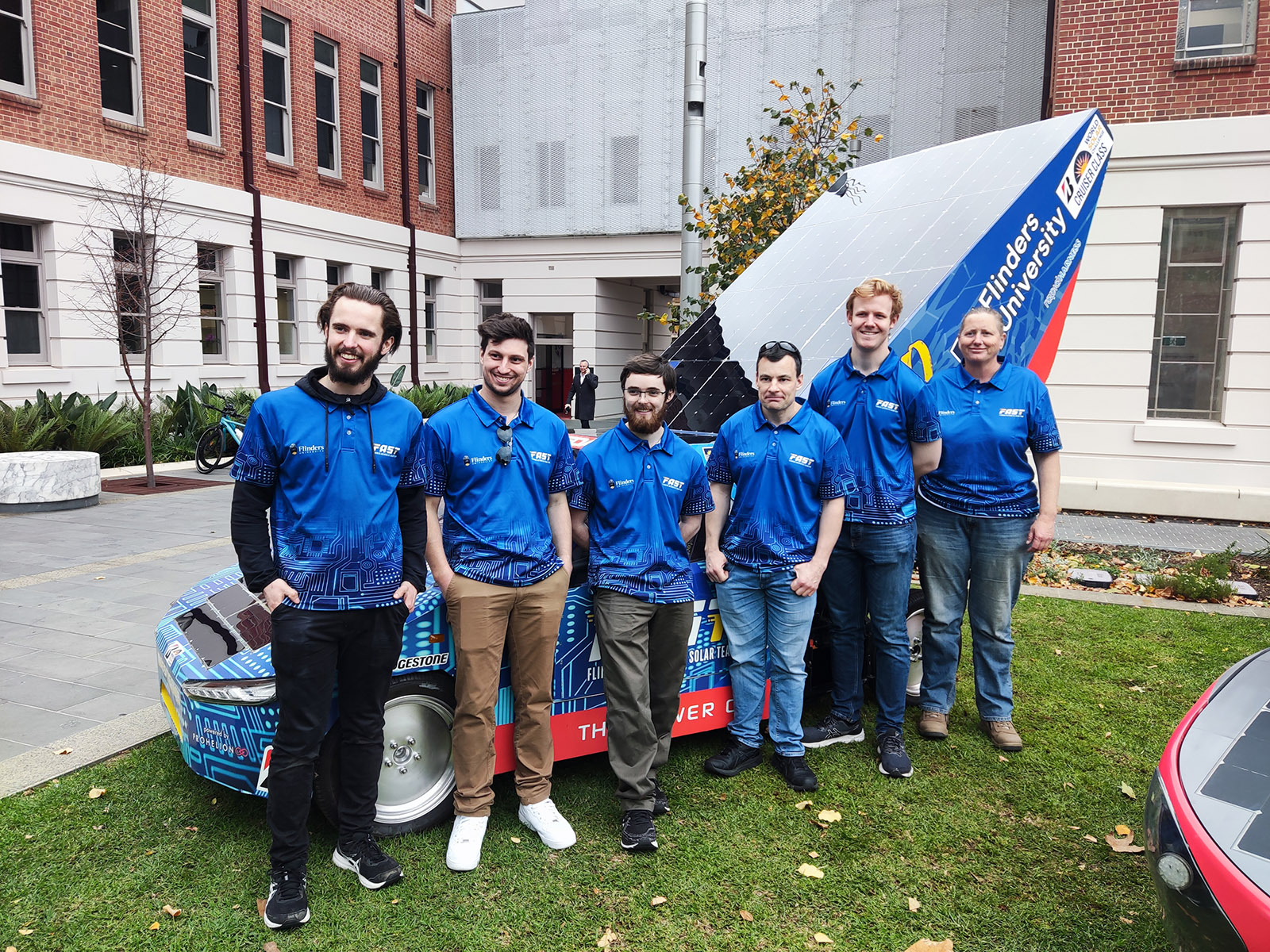
Flinders University students are bringing their learning to life through the hands-on development of a solar car to compete in the Bridgestone World Solar Challenge.
This October, the Flinders Automotive Solar Team (FAST) will make the trek north to Darwin and begin its 3000km journey back down to Adelaide as part of the 2023 Bridgestone World Solar Challenge.
It will be the third Flinders University vehicle entered since 2016, taking on teams from around the world to push the limits of technological innovation and travel the outback in a car powered only by the energy of the sun.
Flinders Electrical Engineering student Jamie Jackson believes this one-of-a-kind experience is the best way to put into practice the skills he’s learning in the classroom while at university.
Jamie initially spotted the FAST stall at O’Week and joined soon after attending his first meeting in 2019.
“I definitely think joining a club like this has helped me better understand course topics,” Jamie says.
“Over the past few years of doing FAST, I’ve learnt more and more techniques and tricks to use CAD programs efficiently in designing usable products for 3D printing and sheet metal.”
He has worked his way up from team secretary to now manage a big chunk of race preparation as FAST Vice-President.
“It’s actually more of a rally – during the day you’re on the road between 8.30am and 5pm,” he says.
“The team has checkpoints to reach every two days or risk disqualification, and that’s where we plug in by the side of the road. If you only make three quarters of your planned distance by 5pm, that’s where you must stop.”
Support from University staff and such experts as Electrification Hub Supervisor Rob Chadwick, who has managed numerous racing teams previously, help shine the spotlight on this growing program, which also showcases STEM opportunities at schools along the pre-race route.
“You’re in the middle of the desert, so if something goes wrong you can’t just pop down to the shops to grab something and fix the issue!” says Jamie.
“Planning is imperative – taking the right supplies with you, but not too much either. It’s all part of the challenge.”
Organisation and communication skills are tested throughout the entire program, allowing students to experience working with others to achieve a common goal. This, in turn, makes their classes more engaging as they put theory into practice in real world situations.
“I believe joining an engineering club at Flinders, whether that’s the solar team or not, is literally the best thing you can do for your education,” says Jamie.
Given that Jamie is essentially working on the future of engineering today, his thoughts on how the industry may change in years to come are positive.
“In the last 30 years alone, we’ve gone from most tasks involving manual labour to now using computer-aided design,” he says.
“Large simulations, which allow you to predict the outcome of what you’re designing before you even build it, are going to play a key part in the future of engineering.”
Find out more: flinders.edu.au/fast

